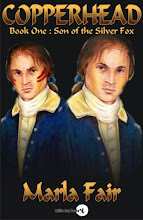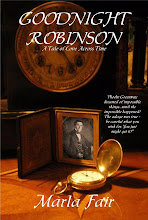



Women on the frontier. So, for how many of you does that conjure up images of Victoria Barclay (BigValley) and Rebecca Boone (The Daniel Boone Show)? We are the TV generation. Most of us don't realize how many of the concepts we have come from the Idiot's Lantern, as some call the TV in Britain. 'Idiot' is right. Case in point - conjure up this image. There's a sound outside the window. Rebecca Boone stiffens. Her man isn't home. Danger is threatening her children. What will she do? Rebecca turns and head for the hearth where her husband's extra flintlock rifle hangs just above the fire.... Get the picture? Gun. Fire. BOOM! It looked good on the show to have that flintlock hanging on the mantlepiece, but the truth is, the powder would have exploded and the rifle's wooden stock would have dried out. No rifles over the fire, Becky. No way.
There are other things, other concepts, which remain from the sixties TV shows my generation grew up on that are skewed. One of them is pioneer women, their strengths and weaknesses, and their roles. I shouldn't 'dis' the Daniel Boone show. If you watch the first season - the black and white one - they tried to get it right. Rebecca is a strong woman, sometimes driven to tears, but more than able to defend her children and herself. She is often left alone by Daniel (due to his long absences) and she takes over the role of protector along with her other roles of teacher, spiritual guide, and chief cook and jug washer. By the second season the prevailing thought of the modern-day era had intruded - suddenly Becky is spineless without her man and cries out 'Dan, where are you? SAVE me!" way too often.
But oh, that first season.... A hint of the real women of the frontier.
Women were often forced to fill their husband's shoes. Hunting, military obligations, jobs that involved travel; all of these took a man away from home for months or even years. The women of the frontier raised their children alone, planted and harvested their food by themselves, preserved and saved it against a hard winter. They grew the plants that became the thread that was woven into the cloth that covered their children's small forms. They were the hands and heart and head that kept their families alive - as well as keeping them together with their practical wisdom and deep abiding faith. Men had the showy jobs - soldiers, Indian agents, lawyers, doctors - they were the ones that history was written by and about - but without their women, they would have accomplished little. After all, who raised their sons in the first place?
Next time some thoughts on 18th century corsets, the old poll results and a new poll.






1 comment:
Cute pictures!!!
Post a Comment